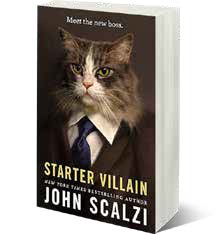Characters have no names, time is relative and the rules of grammar are ignored. You have entered the post-apocalyptic world of “The Road” by Cormac McCarthy.His vision of humanity, in its rarest form, horrifies. Yet, this Pulitzer Prize winning novel, with its short declarative sentences, mesmerizes. No one wants to travel down “The Road,” but McCarthy’s unorthodox style of writing propels you forward. He is a master storyteller who knows the value of unanswered questions. In a world flooded with information, the author demonstrates how unimportant facts and rules are in an uncivilized world. Readers beware! This book leaves a lasting impression – one that you know is highly probable under similar circumstances – but one you may not want permanently imprinted on your brain.McCarthy opens this epic journey of survival by stringing these words together: “Nights dark beyond darkness and the days more gray each one than what had gone before. Like the onset of some cold glaucoma dimming away the world.” Immediately, the reader wants more information. What finally caused humanity’s biggest nightmare? When did the nuclear conflagration take place? The answers won’t be found in “The Road.” Instead, McCarthy’s mission is to strip civilization down to its bare bones, leaving behind basic human instincts, with only a slight glimmer of hope that morality may survive.Readers follow two main characters: a father and son, as they head south attempting to escape the ravages of nuclear winter. They push their meager belongings in a shopping cart along roads that have outlived their purpose. Blankets, a tarp, a lamp, a few cans of food, a toy truck and a pistol loaded with two ominous bullets are remnants salvaged from the past. A pair of binoculars hanging around the father’s neck is used to scan the countryside; not to seek other humans, but to avoid them.The son was born within a day of the war. Readers learn this and a few other kernels of information through the father’s thoughts as he attempts to find some comfort in sleep. But the son’s current age is another unanswered question. I looked for clues in his behavior. When does a child stop holding his father’s hand? When is a child old enough to realize the lines between good and evil coalesce in a world where survival is all that matters? Maybe he is as young as 6 or as old as 10. It doesn’t matter. Father and son are “like pilgrims in a fable swallowed up and lost among the inward parts of some granitic beast.”Keep walking.Travel through McCarthy’s river valley with its “charred and limbless trunks of trees stretching away on every side.” Ash covers everything. “The grainy air. The taste of it never left your mouth.” Sagging wires whine “thinly in the wind. On the hillsides old crops dead and flattened. The barren ridgeline trees raw and black in the rain.”Homes stand burnt or abandoned. Once a source of refuge, the houses are now viewed as traps set to capture prey. Farther on, faded billboards advertise motels. When snow falls, it is the same color as the sky – gray. It seems that man’s folly has sucked all color from the planet, obscuring the sun, moon and all starlight.Cities, populated by the dead, have long been stripped of all food. “The mummied dead everywhere. The flesh cloven along the bones, the ligaments dried to tug and taut as wires. Shriveled and drawn like latterday bogfolk.” While some remain clothed, all have been stripped of their shoes. Here, the reader is forced to focus on the essential items necessary for survival. I pictured myself, like the father and son, wrapping the remnants of my shoes in cloth; binding them together with twine, string or wire, before the trek through the mountains.A ghost character enters the dreams of the father. His wife is dressed in gauze, with her dark hair tied up in combs of ivory and shells. He hates the dreams because they remind him of a lost world. “Lying there in the dark with the uncanny taste of a peach from some phantom orchard fading in his mouth. He thought if he lived long enough the world at last would all be lost. Like the dying world the newly blind inhabit, all of it slowly fading from memory.”Starvation is the pair’s unseen companion. Morel mushrooms growing under burnt logs create a feast. A forgotten can of Coca Cola, found buried deep inside a vending machine, is the son’s first taste of a carbonated beverage. McCarthy’s choice of the iconic product is understandable. Archaeologists have long claimed the Coke bottle will one day be an identifying artifact of our culture.I have purposely left out the interactions between father and son and other human beings. Suffice it to say; when humans become the prey, life is unbearably evil. But McCarthy leaves a glimmer of hope for humanity by having the father instill the difference between good and evil in his son. He often reminds his son that they are “carrying the fire” of civilization. Yes, they must kill to survive, but they will not kill humans in order to satisfy their hunger. Such is the basic difference between civilized and uncivilized existence when law and order is abolished.Does the journey lead the pair to a better place? Will humanity rise out of the ashes to form a new civilization? Taking my cue from McCarthy, I think these questions are better left unanswered. Read “The Road” and come to your own conclusions.Note: Next month, I’ll review “The Post-American World;” a nonfiction book by Fareed Zakaria. Read the book then read my review. Send your comments to KathyH@newfaclonherald.com.






